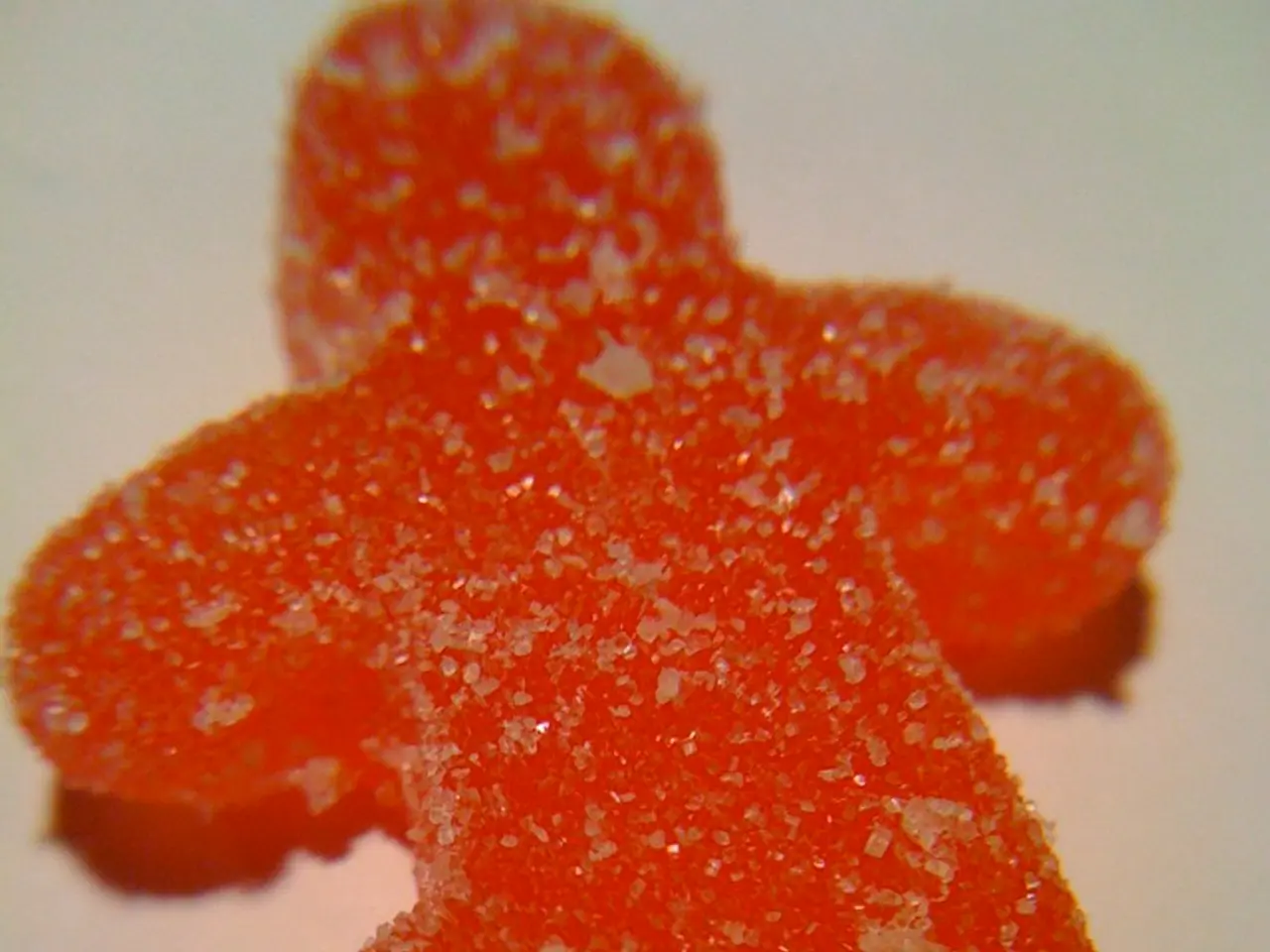Sugar's Impact on Anxiety Levels
Sugar and artificial sweeteners have been a topic of interest in the realm of mental health, particularly in relation to anxiety. Here's a breakdown of the latest findings.
A study from 2017 suggested that a lower intake of sugar might help improve psychological health, as men with a higher sugar intake had a 23% higher chance of developing common mental disorders after 5 years. This finding was supported by another study that found diets high in simple sugars have been linked to brain dysfunction and inflammation, which can contribute to anxiety.
On the other hand, certain artificial sweeteners might not be great for anxiety. For instance, ingesting a lot of aspartame (25 milligrams (mg) per kilogram (kg) of body weight a day) might make one more prone to irritability and depression. A 2018 study linked aspartame to cognitive and behavioral problems, including anxiety, headaches, migraine, and insomnia. Splenda and Stevia were found to lead to unfavorable changes in dopamine, a neurotransmitter that plays an important role in anxiety modulation, in an animal study from 2018.
Whole foods, refined carbs, processed meats, sugary drinks like soda, and foods high in sugar such as donuts, cakes, cookies, and iced tea are some of the foods and beverages that may contribute to inflammation and, consequently, anxiety.
However, it's not just about avoiding sugar and artificial sweeteners. Diets high in cholesterol, trans fats, and simple carbs are associated with anxiety, according to a 2021 review. On the flip side, diets high in refined food and low in nutrient-dense foods can lead to nutrient deficiencies, which are associated with increased anxiety. Maintaining healthy levels of vitamin D, omega-3s, magnesium, and vitamin C is associated with reduced anxiety.
It's important to note that cutting out sugar can help reduce anxiety symptoms, but it's not a cure-all. Sugar withdrawal can trigger symptoms such as fatigue, anxiety, irritability, confusion, and in some cases, panic attacks and sadness. Caffeine can worsen anxiety symptoms in some people.
Lastly, a 2021 review that included 16 studies found that an inflammatory diet was associated with a 27 percent increased risk of anxiety symptoms. Improving overall diet by eating more nutrient-dense foods is recommended.
In conclusion, while a lower intake of sugar and artificial sweeteners might help improve psychological health and reduce anxiety symptoms, it's crucial to consider the overall diet and maintain a balanced intake of nutrient-dense foods. As always, it's best to consult with a healthcare professional for personalized advice.
Read also:
- EU's ban on bean exports from Nigeria results in an annual loss of $363 million for the country, according to AAPN.
- Rapid action required: Scientists urgently working to freeze a severely endangered tree species to prevent its extinction
- Proposal for workforce radiation safety directive requested by the Commission in the face of risk exposure.
- New York City Council Proposes Legislation to Eliminate Fluoride from Public Water Supply







